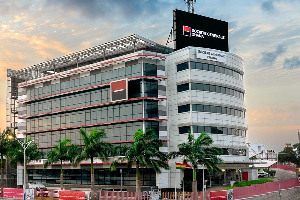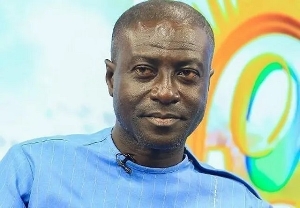- Home - News
- TWI News | TV
- Polls
- Year In Review
- News Archive
- Crime & Punishment
- Politics
- Regional
- Editorial
- Health
- Ghanaians Abroad
- Tabloid
- Africa
- Religion
- Election 2020
- Coronavirus
- News Videos | TV
- Photo Archives
- News Headlines
- Press Release
Business News of Friday, 14 June 2013
Source: B&FT
Energy sector demands consensus
To resolve the drawn-out difference between power utilities on one hand and consumers on the other, all stakeholders need to sit down and examine the numbers, Dr. Kwabena Donkor, Chairman of the Parliamentary Select Committee on Mines and Energy, has said.
“I would expect that all political parties, all economic think-tanks and all strands of social opinion -- the NGOs in the energy sector -- will be brought on board to look at the numbers. Let’s look at the issues and agree a certain minimum consensus,” the MP told the B&FT.
One of the points of convergence, he said, should be that whatever tariff is established must cover the cost of power generation. “The consensus could also include the fact that we need to take all the steps necessary, to make our energy institutions effective and efficient.”
The proposal by power utilities -- Volta River Authority, Electricity Company of Ghana and the Ghana Grid Company -- for tariffs to be increased has not gone down well with both domestic and industrial consumers, who are asking for improvement in service delivery first.
The ECG, which is in charge of power distribution, is asking for an increase in the unit cost of power from 9.76 pesewas to 30.67 pesewas, representing an increase of 214 percent.
The Association of Ghana Industries, the Private Enterprise Federation and the Consumer Protection Agency have all expressed disquiet about the proposed tariff increments, asking for a justification.
Individual consumers have equally been vocally opposed to what they consider as killer tariffs in the country even as service delivery has been nothing to write home about.
“It is not as though consumers do not want to pay fair tariffs for the power they consume,” a commentator on Ghanaweb.com said. “Past experience has shown that there is no guarantee that after paying the consumer will get uninterrupted power supply...”
“Whoever told you power has been cheap in Ghana? What is the average income of the majority of people in Ghana? Compare that to the present tariffs and tell me how cheap it is. If you want to compare tariffs in America to here, you must as well compare their wages to ours here. Anyway, it is your inability to transmit power efficiently (30 percent wastage during transmission) that is costing you. Do not blame the people...,” said another commentator who gave his name as K.M. Agyin.
Dr. Kwabena Donkor, however, said that steps must be taken to bring about a national consensus since energy is critical to Ghana’s well-being.
“Currently, as a nation, we are losing our economic competitiveness as a result of this power crisis, and it does not augur well for us. Demand for power is expanding by 10 percent per annum, and that is even very conservative. If you add the suppressed demand that we are unable to meet, we are looking at 15 to 20 percent per year,” he said.
“If you consider the fact that VALCO is not operating all of its pot lines, then we have a serious deficit; and we can only remove this deficit by investing heavily in the sector. Investment in power is in the hundreds of millions. For any serious generation above a hundred megawatts, we are looking at between US$150million to US$200million. So it involves serious money, and there is a gestation period from feasibility to completion. We are looking at another three-year gap, and so we need to take some decisions now. We need to take those decisions today, not tomorrow,” the MP added.
Dr. Donkor, a former Deputy Minister of Energy under the Mills administration, has also been advocating the importation of Liquefied Natural Gas to resolve the fuel problem in power generation, which appears to be the number-one reason power supply has been erratic.










